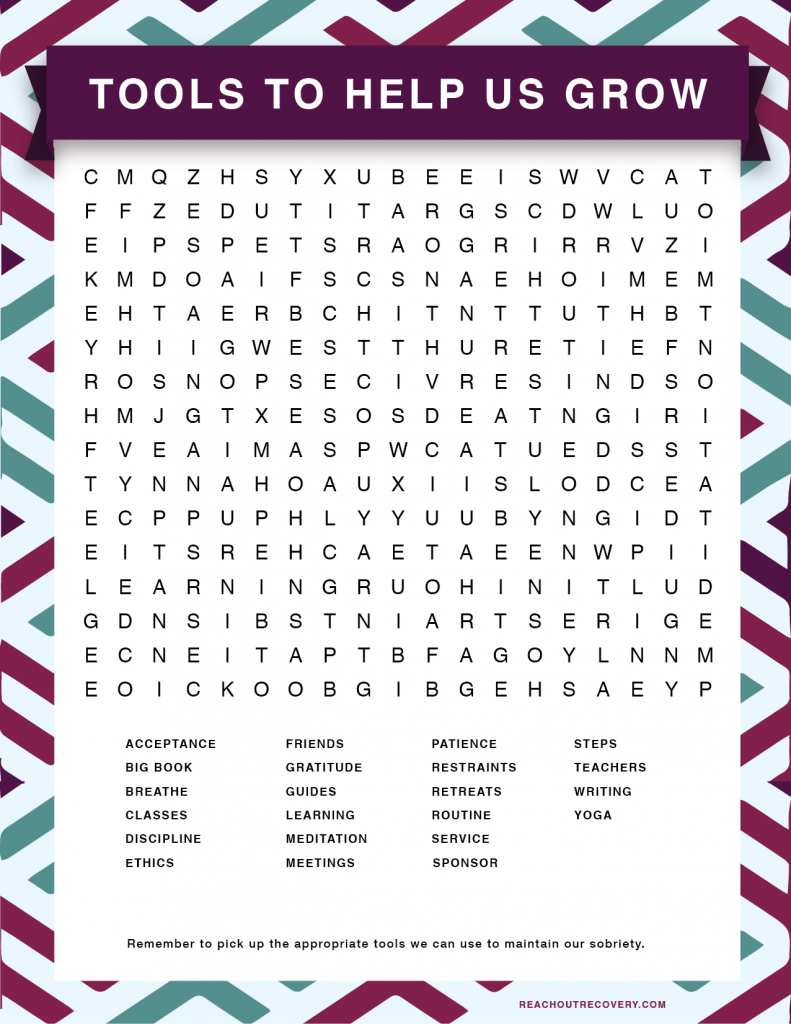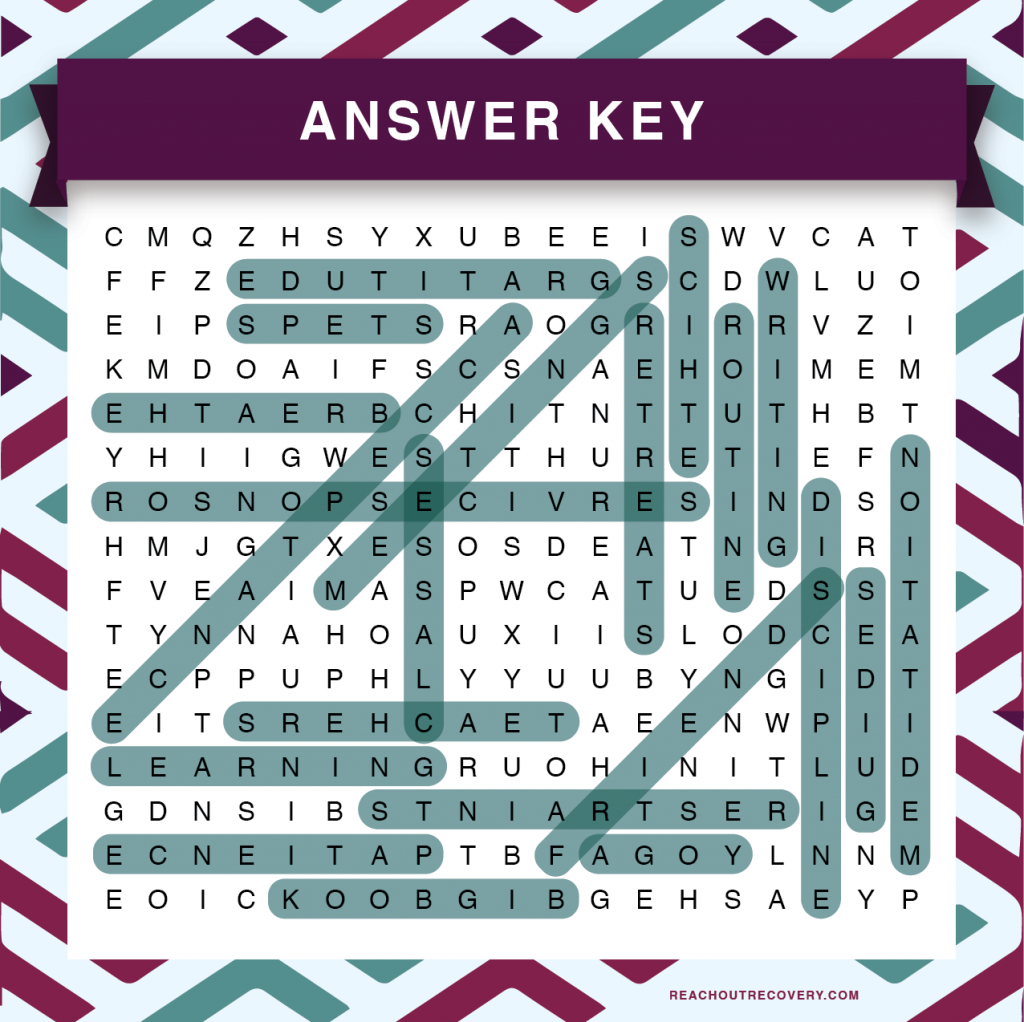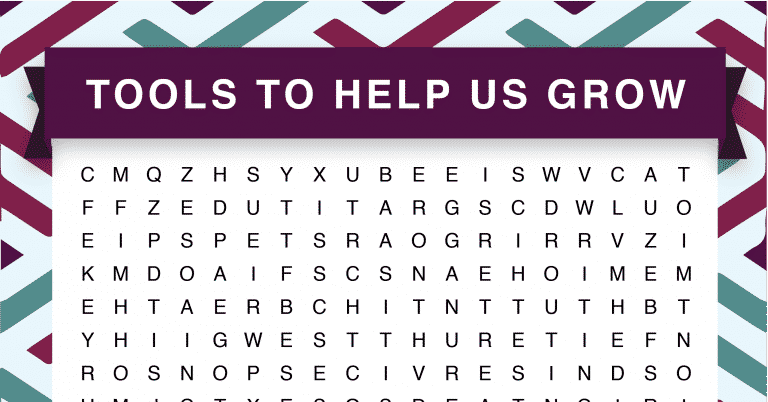
Click the download button to print and discover the Tools That Help You Grow word search.
The answer key is at the bottom of this page.
In recovery, it’s important to develop tools that help us grow
Read the following excerpt from Kyczy Hawk’s book, below:
Living an ethical life required me to adopt certain codes of behavior. The Twelve-Step program offers guidance—a process to go through to determine what is in alignment with your values and with those of the group. Service, humility, willingness, honesty, and responsibility are a few. We look inward to find these; we practice them in our community.
Yoga brought more form and specificity to these values for me. The tenets of the Yamas and the Niyamas (Restraints and Observances) are similar to the principles behind the Twelve Steps. The Yamas are roughly translated as non-harming, non-lying, non-stealing, non-excess, and non-attachment. The Niyamas are cleanliness, contentment, discipline, self-study, and surrender. They are similar to the principles of the world’s major religions and spiritual practices. In the familiarity of their meaning, they give me comfort.
When I first became clean and sober, I was satisfied with the broad brushstrokes of leading an ethical life. For example, I was as honest as I could be. I needed to feel safe, but I also needed to let go of secrets. The safer I felt, the more I could reveal and release. Yet, like the child’s game of sorting balls by size by letting them fall through holes decreasing in diameter, my ability to see the finer and finer aspects of non-truth increased with time. I have worked through the Twelve Steps now a number of times from several perspectives, and each time, I have reviewed this selfsame life of mine with a finer and finer-toothed comb. The result has been my greater and greater understanding of honesty.
Check out some of Kyczy’s other word searches!






















